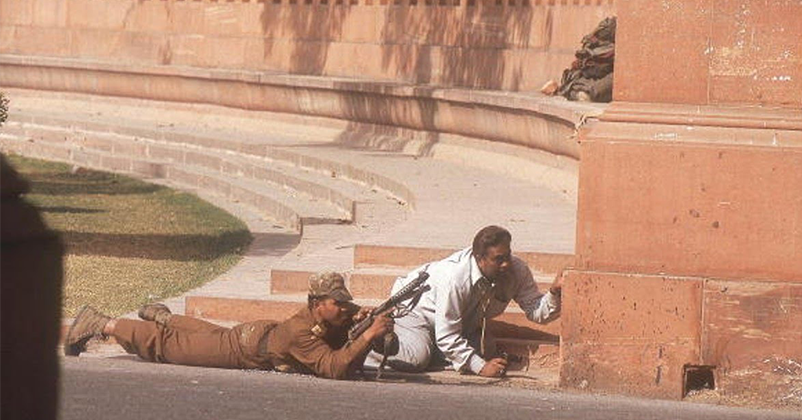13 December : "Unforgotten Agony: The Indian Parliament Attack of 2001”
Total Views |

The attack on the Indian Parliament on 13 December, 2001, stands as a watershed moment in the nation’s history. Five heavily armed terrorists stormed the Parliament complex in New Delhi, resulting in a fierce gun battle with security forces. The attackers, who were members of the Pakistan-based terrorist group Lashkar-e-Taiba (LeT) and Jaish-e-Mohammed (JeM), managed to breach the security and enter the premises.
The assailants aimed to target the heart of India's democratic institution, symbolizing a direct assault on the country's sovereignty.
The attack began around 11:30 am when the attackers, armed with AK-47 rifles, grenades, and explosives, drove an Ambassador car with fake Home Ministry and Parliament stickers through the gates of the Parliament House complex. They started firing indiscriminately, killing security personnel and civilians in the process. The Indian security forces immediately responded, engaging in a fierce gun battle with the terrorists.
During the attack, the terrorists managed to enter the Parliament building itself, leading to a lockdown and evacuation of all Members of Parliament (MPs) present. The security forces, including the Delhi Police, Central Reserve Police Force (CRPF), and the National Security Guard (NSG), launched a counter-operation to neutralize the attackers.
The intense gunfight lasted for about 90 minutes, during which all five terrorists were killed. However, the attack resulted in the deaths of 14 people, including five terrorists, six Delhi Police personnel, two Parliament Security Service personnel, and a gardener. Several others were injured in the attack.
This incident led to a significant escalation of tensions between India and Pakistan, with both countries mobilizing their armed forces along the border. The standoff lasted for several months and brought both the nations to the brink of war.
In response to the attack, India strengthened its counter-terrorism measures and implemented stricter security protocols to prevent future incidents. The Parliament attack remains a significant event in Indian history, highlighting the ongoing threat of terrorism in the region and the need for constant vigilance in maintaining national security.
Extensive investigations after the attack revealed four names in connection with the case: Afzal Guru, (a former J&K Liberation Front terrorist ), his cousin Shaukat Hussain, Shaukat’s wife Afsan Guru and SAR Geelani.
The court acquitted Afsan and sentenced Geelani, Shaukat and Afzal to death. Geelani was later acquitted for 'need of evidence’ and Shaukat was given 10 years of imprisonment.
On 9 February, 2013, Afzal Guru was hanged to death in Delhi’s Tihar jail.

